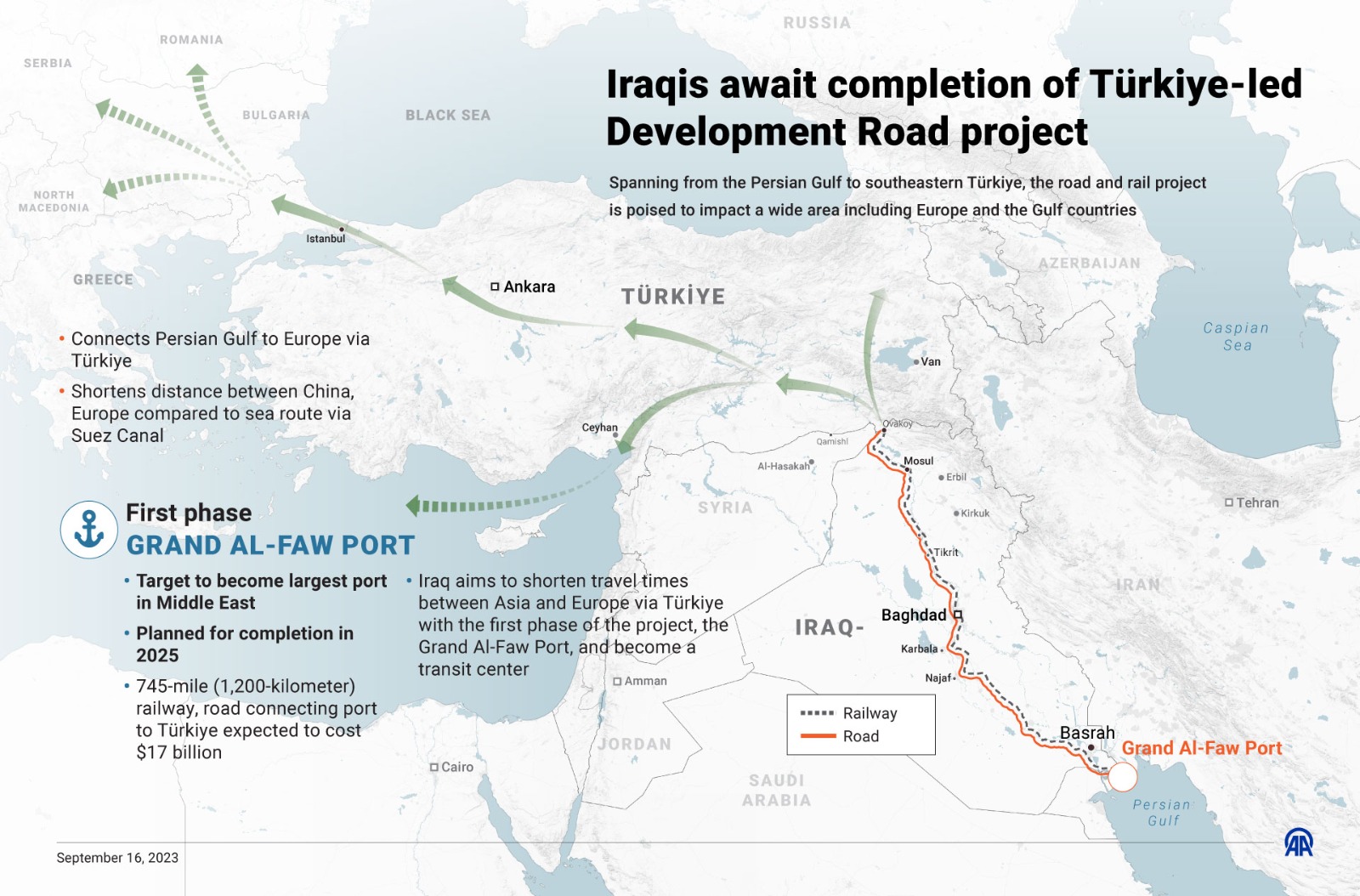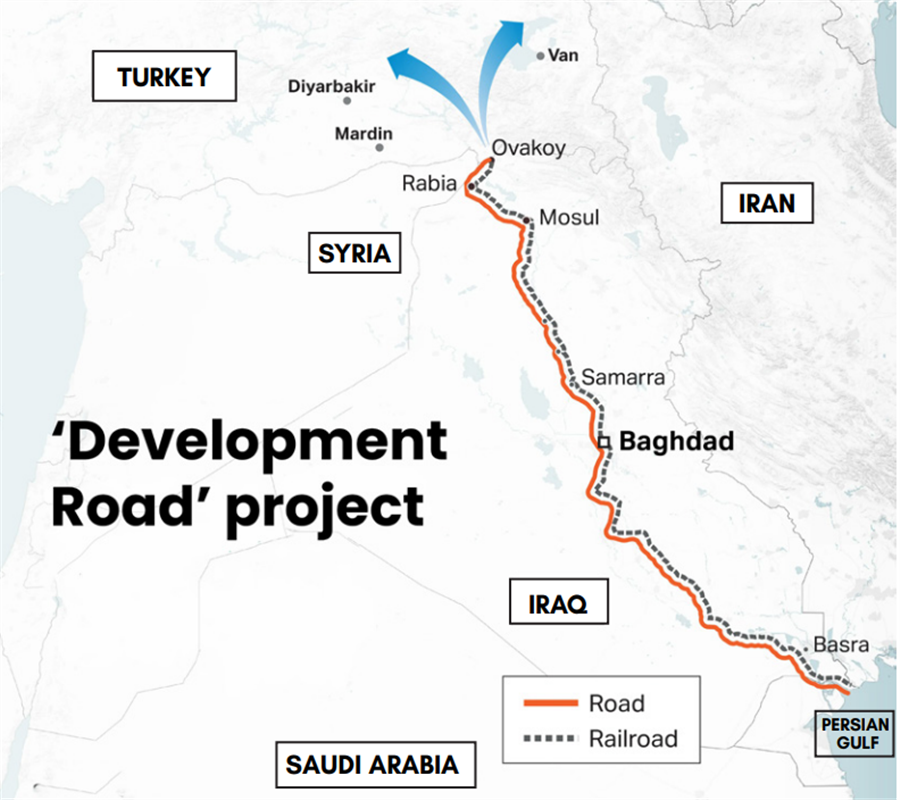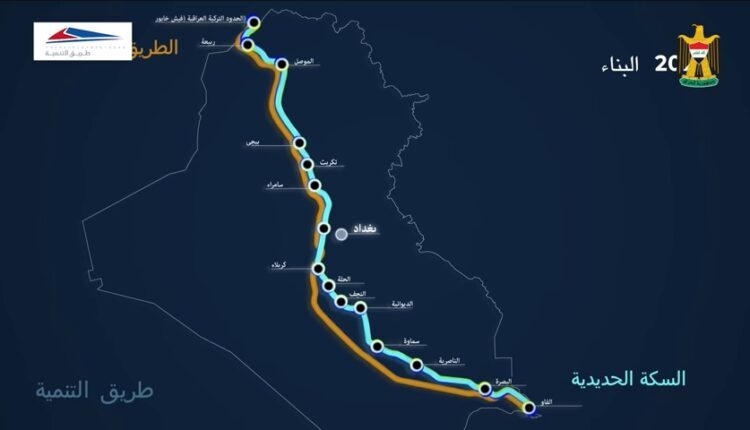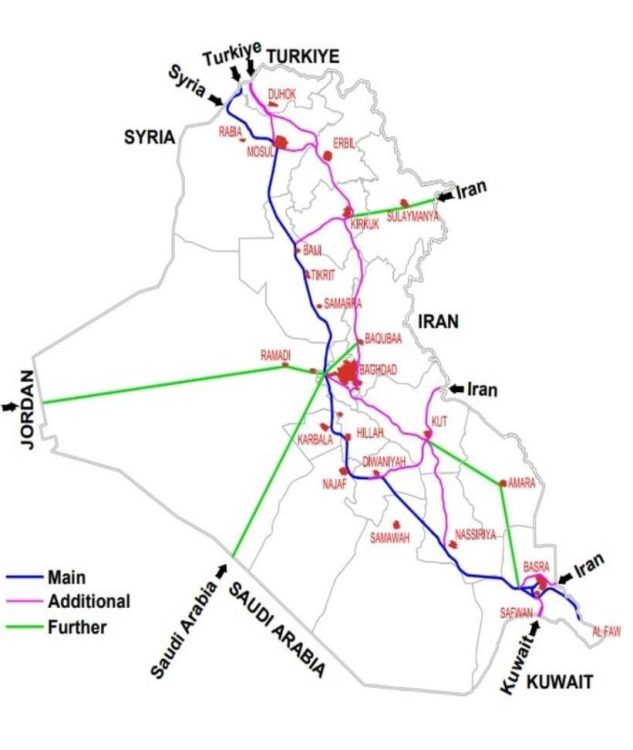
Close

Approach Words: Competitive City, Integrated City, Urban Livability
Public Policy Instruments: Physical Intervention, Planning
Iraq Development Road Project is a cross-border transportation network1 and trade corridor2 comprising the construction of a network of highways and railways infrastructure3 4 connecting the southern port of Faw in Basra City to the Faysh Khabur border crossing with Turkey in the north,5 passing through 10 Iraqi cities.6 7
The project aims to transform Iraq into a commercial “transit hub” connecting Asia and Europe via Turkey,8 and provide financial returns and job opportunities that reduce the state’s reliance on hydrocarbons and on offering public-sector employment to young job-seekers.9 It also seeks to connect Iraq with neighboring countries, especially Turkey, boosting economic integration and trade10 while providing more efficient and cost-effective means of moving goods and people between the two countries.11

Title: Location Map of the project
Source: Click Here

Title: Map Showing Road and Rail Network Project
Source: Click Here

Title: Map Showing the 15 Stations to be constructed along The Route.
Source: Click Here

Title: Map Showing the Main Project Lane in addition to proposed Additional and further lanes connecting different areas in Iraq.
Source: Click Here
The proposed network comprises dual rail line for cargo and passenger trains and a motorway for cargo trucks,12 designed to span the entire length of Iraq, covering an impressive distance of 1,200 kilometers (745 miles).13 It will extend from the port to the Turkish border, passing through Diwaniyah, Najaf, Karbala, Baghdad and Mosul. It is expected to provide access to the Mersin Port from the Turkish border.14 The project will include the construction of 15 train stations along the route in the above-mentioned cities.15 These stations will serve as vital connectors, facilitating the seamless flow of transportation throughout the region.16 Additionally, the project will include the construction of oil and gas pipelines.17
The project will provide travel services for more than 15 million passengers each year. It will have an initial capacity of 3.5 million containers of cargo per year (22 million tons),18 which will be raised in phases to 7.5 million containers and 33 million tons per year.19 The network will encompasses 10020 High-speed trains will run on the railway line, with a maximum speed of 300 kilometers per hour for passenger transport and about 150 kilometers per hour for goods transportation.21 Cargo trains will operate for 12 hours, while 6 hours will be dedicated to passenger services, enhancing accessibility and connectivity.22
The project will create 100,000 jobs, but upon its completion, this figure will increase to more than one million jobs.23

Owner/Developer (Public)

Consultant/Designer

Funder

The project is initiated by the Iraqi government24 and will be implemented under the supervision of the Iraqi Ministry of Transport.25 A project headquarters has been established within the ministry to closely oversee the project’s execution.26 The office will also be tasked with contacting neighboring countries to explore possible contributions to the project’s realization.27
The master plan is designed by the Italian company PEG Infrastructure.28 The project implementation has been awarded to France’s Alstom Company.29
The project cost is over $17 billion,30 31 $10.5 billion allocated to financing the construction of the railway line and purchase of electric trains, and $6.5 billion for the construction of the road and service facilities.32 The project will be completed in three phases (2028, 2033and 2050)33 34 and is expected to be operational in 2028.35 Initial measures have already been set in motion, including soil surveying activities to determine the optimal route for both the rail and road links.36
This project implementation aligns with the ongoing construction of the Grand al-Faw Port, where key activities, including the development of berths, the navigational canal, and the submerged tunnel, are in advanced stages.37
Project Link
Endnotes
N.A.
References